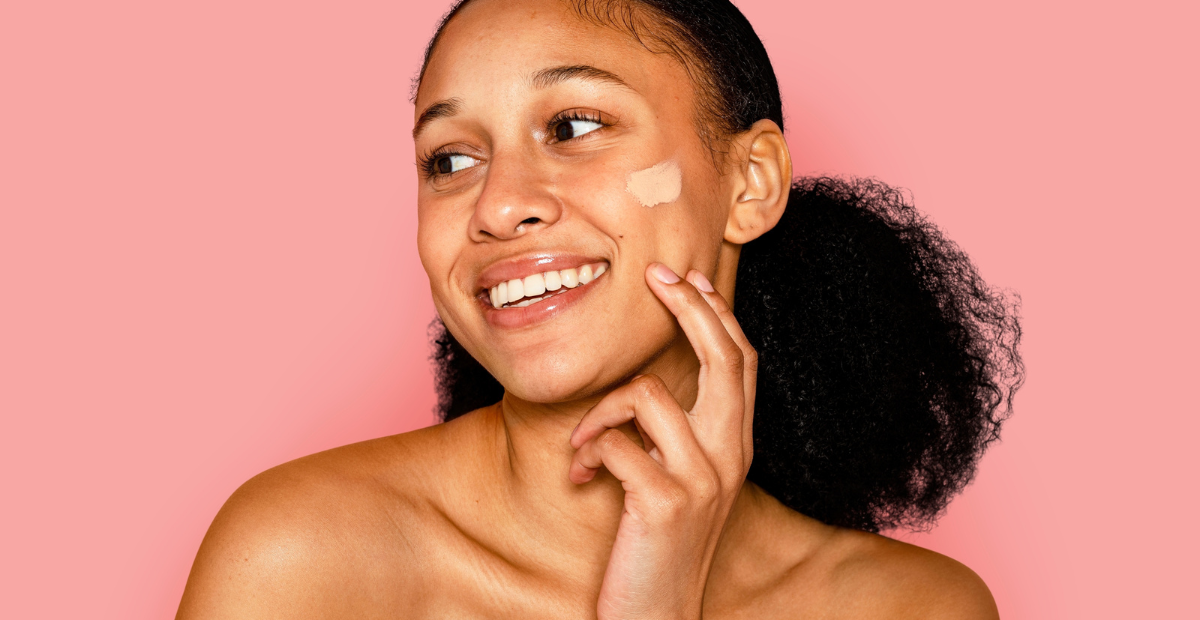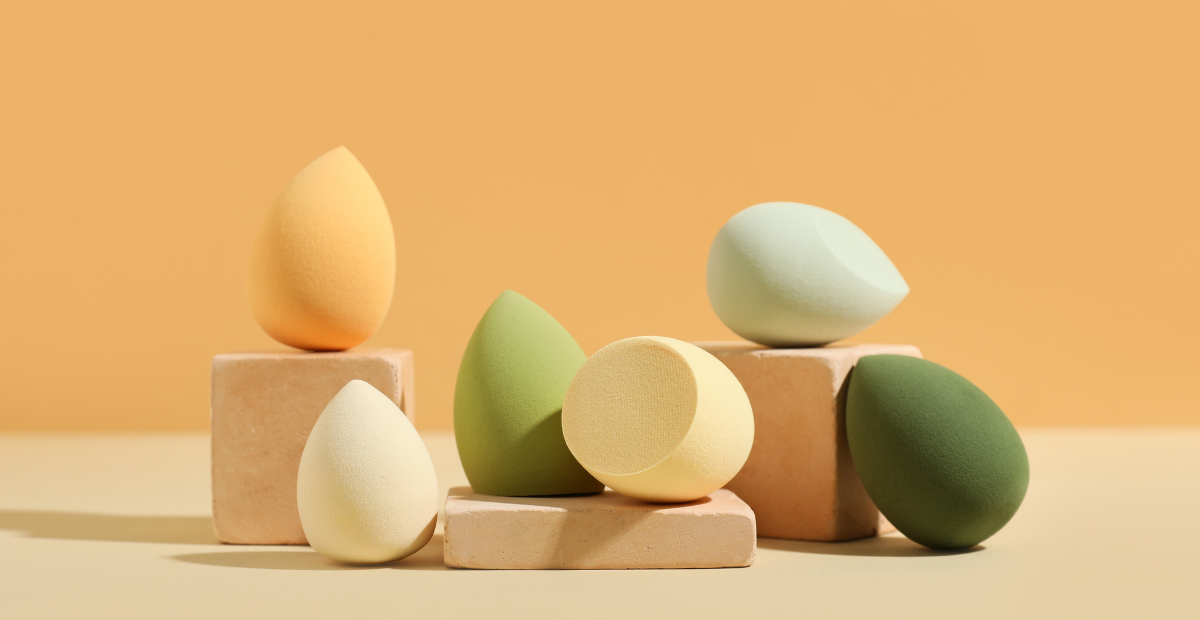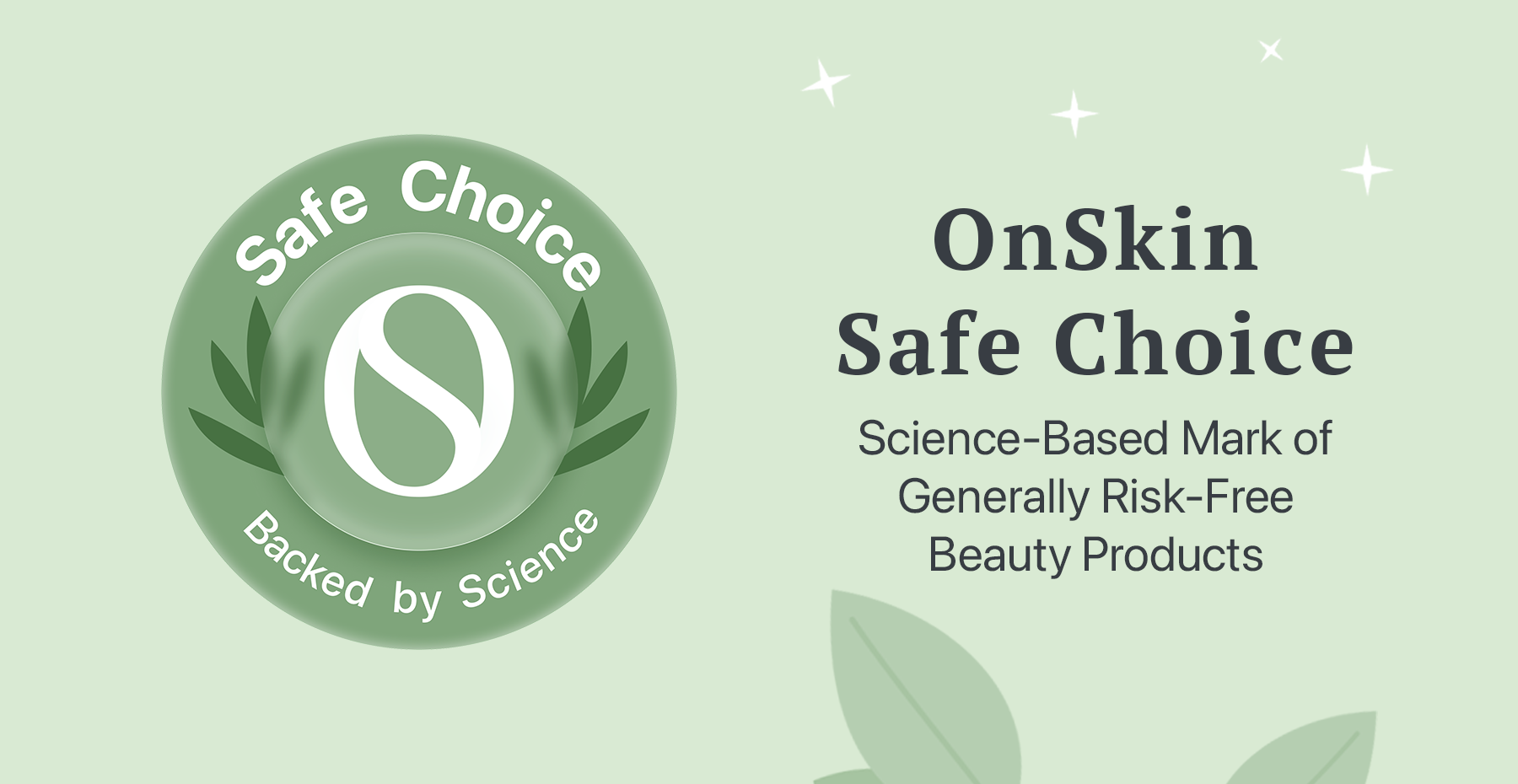Topical Caffeine: 3 Ways Your Skin May Benefit
Onskin Content Team
Your guides through the skincare chaos
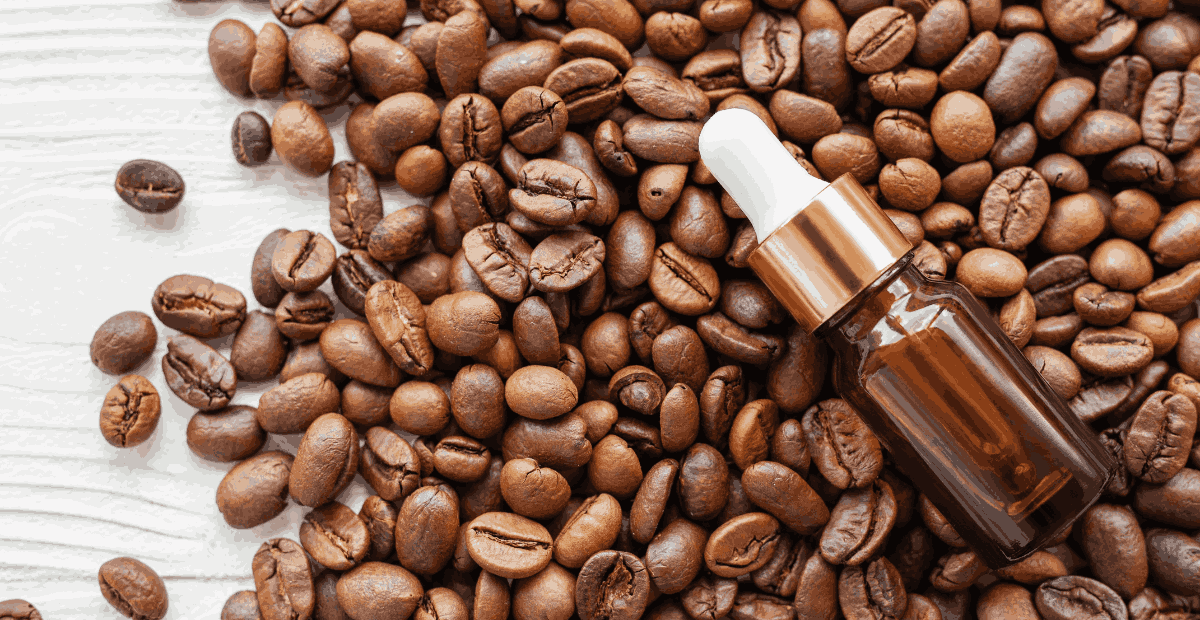
A cappuccino? A latte? Or perhaps black tea? ☕
Whether you’re a tea lover, a coffee stan, or someone who relies on energy drinks, many of us love the kick caffeine gives us. But did you know that topical caffeine is also a powerful cosmetic ingredient, beyond its energy-boosting powers? Grab your favorite drink, and let’s explore how it can benefit your skin together.
Puffy Eyes: Topical Caffeine for the Win?
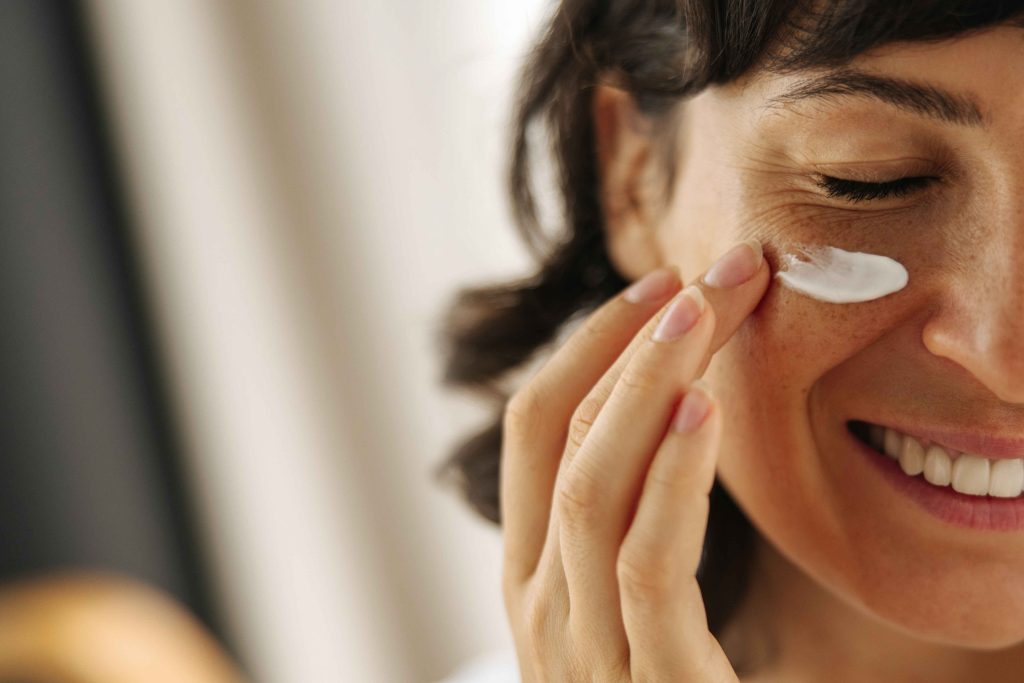
First off, here’s a fact you probably know all too well—the skin around our eyes is super thin and delicate, with barely any fat underneath. So, after a one more episode sleepless night or a good cry, blood vessels can get puffy, leading to dark circles and those annoying comments like, “You look tired.” If you’ve ever tried eye creams to tackle these issues, you might have noticed that many of them contain topical caffeine. So, what’s the deal with caffeine for this sensitive area?
While solid research is still lacking, some experts believe caffeine helps improve blood flow in the skin and can constrict blood vessels. This means it can make dark circles less noticeable and brighten up the area, making your skin look more refreshed. It won’t magically give you 10 extra hours of sleep, but it can help you look more awake and boost your mood a bit.
But remember, even though caffeine can be absorbed by your skin, its effects are only temporary—kind of like a shot of espresso. You can’t rely on it to permanently zap puffiness or dark circles, just like you can’t count on coffee to keep you energized forever. Plus, if you think dark circles run in your family, caffeine-infused products probably won’t change that much. Want to know what can make a difference? Check out this post for more in-depth tips.
Caffeine? Soothing and Calming?
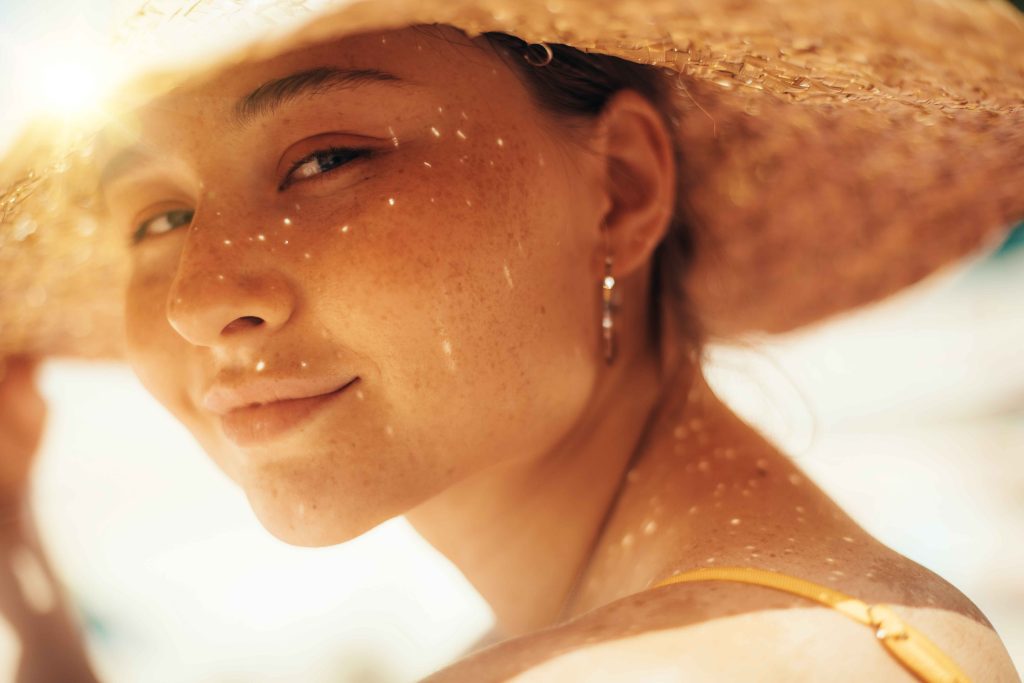
Yes, you read that right! While caffeinated drinks might make some people jittery and fidgety, some studies suggest that cosmetics packed with topical caffeine can actually help reduce redness and soothe irritated skin thanks to its antioxidant properties, especially after you’ve been out in the sun.
Here goes just a boring reminder of what UVA and UVB rays do to your skin—they speed up signs of aging (like fine lines, wrinkles, and pigmentation), and luckily, caffeine is thought to help protect your skin from these effects. Just remember to always wear sunscreen when you’re out in the sun and consider regular skin check-ups with a dermatologist if you can.
By the way, caffeine isn’t the only antioxidant you should be aware of—think niacinamide, vitamins C and E, resveratrol, zinc, and more. If you’re feeling overwhelmed by all the options and don’t want to spend hours deciphering product labels, consider using the OnSkin app. It’ll guide you in finding these beneficial ingredients and show whether a product suits your skin type (sorry, cute packaging doesn’t count 😉).
Bye-Bye, Cellulite: How Caffeine Can Help
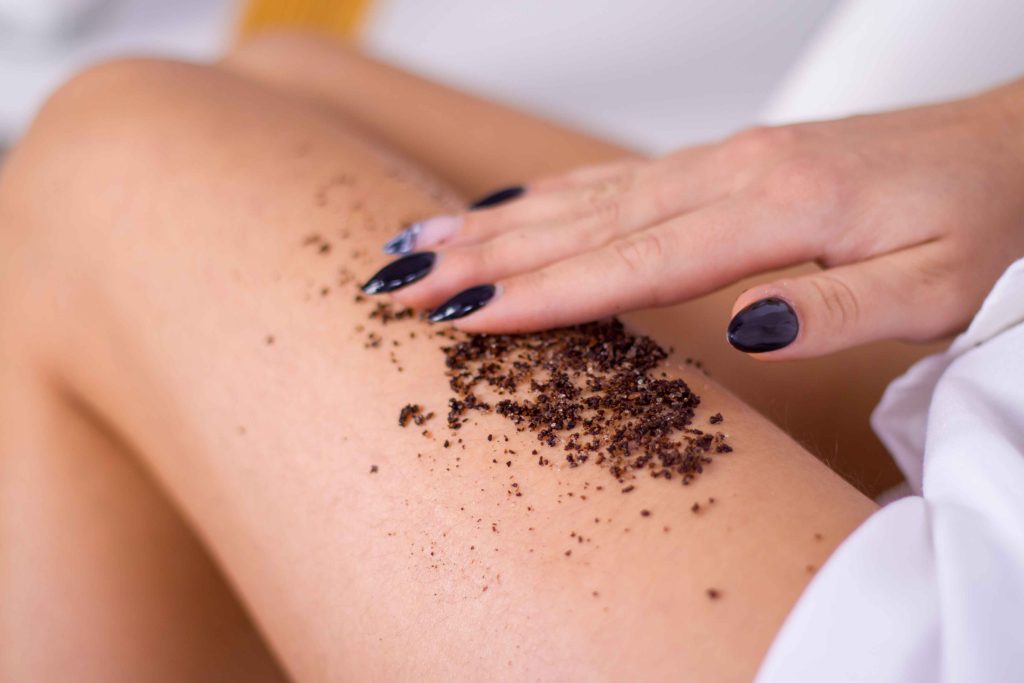
Noticing those bumpy dimples and depressions in your skin? No need to panic or shame yourself. Most healthcare experts say cellulite isn’t harmful at all. In fact, it’s super normal—about 80% to 90% of women who’ve gone through puberty have it.
But if you’d like to tone down its appearance, topical caffeine could be your go-to. Some studies suggest that using it stimulates our metabolism and encourages lipolysis, which is just a fancy way of saying it helps break down fat and turn it into energy—all this could make cellulite less noticeable.
That’s why, if you’re planning to get an anti-cellulite massage, consider using oils or creams with topical caffeine. These can help stimulate blood circulation and make the skin’s texture more even. You can even give yourself a little massage on the affected areas in gentle, circular motions to help the product absorb better.
Topical Caffeine: Any Risks?
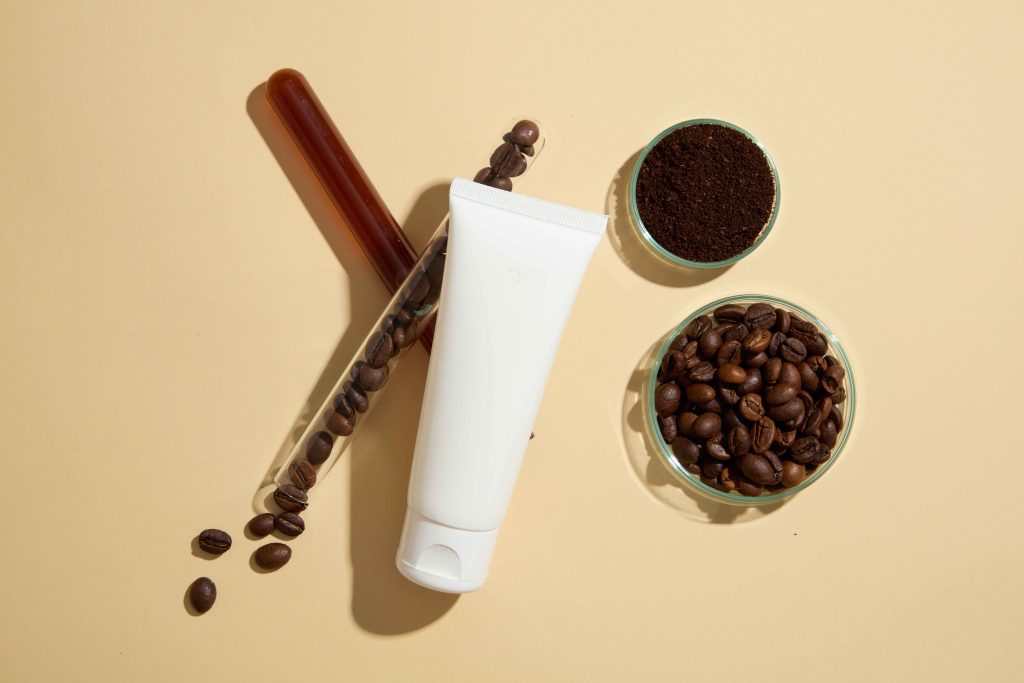
You know caffeine’s effects are short-lived, but there’s also a chance of irritation, just like with most skincare ingredients. To be on the safe side, start slow! Patch-test the product on your skin, especially if you’ve never used caffeine-infused cosmetics before. This way, you can ensure your skin is cool with the new product before using it regularly.
The Last Sip
Even though its effects aren’t really well studied, skincare and body care formulated with caffeine are typically safe, but their results aren’t super long-lasting. Does that mean you shouldn’t include it in your routine? Not at all! Try a product or two and see if they do anything for you.
Bonus Caffeinated Facts ☕
- Caffeine is actually tasteless! So, it’s not what gives your latte that divine flavor.
- The Science Team at OnSkin has already analyzed tons of products with caffeine—maybe your favorite product is already on the app.
FAQ
-
Where do I start with OnSkin?
Download the app and think of a product you’d like to know more about. Then, go to the main screen and choose how you’d like to get the info —by manually looking it up in the search bar, by scanning its barcode, or by simply taking a picture of the packaging. Once you’ve done any of these, you can see how safe the product is and if it suits your skin or hair (if this analysis is available).
-
What is Safety Rating, and how is it calculated?
In OnSkin, we base product rates on ingredients. Each is closely studied by our medical team and then evaluated. This way, each product gets a score from 0 to 100, with 100 as the safest level.
Safety Levels
- Excellent (76–100)
- Good (51–75)
- Not great (26–50)
- Bad (0–25)
These scores are backed by the latest scientific studies. You can find links to the resources we’ve used on each ingredient page. To assess the safety of product ingredients, we evaluate them according to the following parameters/criteria
- Endocrine disruption risk / Reproductive toxicity
Indicates the probability of mimicking, blocking, or interfering with the body hormones.
- Сarcinogenicity
Measures the potential risk of inducing cancer.
- Allergy risk
Estimates the probability of an allergic reaction.
- High concentration alert
Determines the risk of being unsafe in certain amounts.
-
What is Skin Match?
Based on the info you input about your skin type, age, skin care goal, and other “settings,” OnSkin checks how well a product is tailored to your unique skin needs — it’s basically like a dermatologist helping you find the right products, minus the fees and the long wait. The product you’re checking might be labeled as It’s a match!, Hit-or-miss, or Not a match for you. The app also detects ingredient groups such as Anti-acne, Anti-inflammatory, Moisturizes, May be drying, Comedogenic, and others — by tapping one, you see exactly what ingredients from this or that group are in the product.
-
I seem to have a problem with using the app. Who should I contact?
Please reach out to us at [email protected], and we’ll carefully look into your issue. Your ideas for improving the app are also very welcome!
-
Do you have an Android version?
Not yet! Hey Android users, we hear you, and we're thinking about making an Android version, but we haven't started the development yet.
Tracker Sent!
It’s on the way to your inbox.


